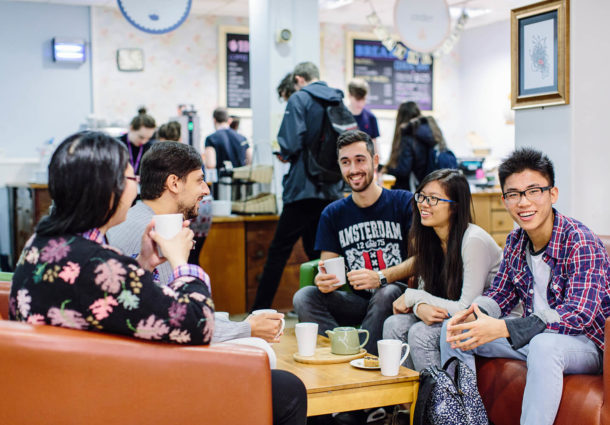Tell us about your society, SSAFE!
“SSAFE stands for Suicide Support and Awareness for Everyone. We are a welfare society that prioritises the importance and awareness of self-care and listening to students’ social and emotional needs. We are open to all students, and our memberships are free!
We host an array of socials, including our Tea and Talk, Mental Health Training Services such as Papyrus, Bracelet Making, Candle Making, Tote Bag Painting, Games Evenings and Mug Painting. We also collaborate on events with other societies, such as the Feminist Society, Sasha and Leeds Uni Boob.
The premise and focus of the society is to encourage everyone to know it’s okay not to be okay — you are not alone. As a community, we are here to support one another. Since our committee is made up of students, we are aware of the stresses of being a student. We know life can be complicated. Friendship difficulties, family conflicts, finances, insecurities and finding compassion for yourself are all things students may juggle alongside their studies. We are always here if you ever need a listening ear, a cry, or a distraction and we can direct you to external and internal services which can offer you support.”
For many students, it is exam season. Do you have any advice on how students should prioritise their wellbeing during this time?
“The preparation before, the studying during and the anxiety after exam season can be very draining. It can feel daunting and overwhelming. Throughout this period, it is important to remember you can only do your best. Remember to reward yourself for your successes, which will keep you motivated and determined to continue.
Before exam season starts, I recommend getting prepared. I have found that setting up a timetable has been a good way to keep myself accountable. Whether you work better in the morning or the evening, you can tailor it to your needs. Once you know what study plan works for you, you can dedicate time to yourself, your friends, and, most importantly, sleep! Remember to always listen to your body. It is tempting to cram as much studying as possible into your day, but sleep and rest are imperative for your mind to focus.”
What strategies or practices have SSAFE members found helpful in managing their mental wellbeing during stressful academic periods?
“Many members routinely attend our socials weekly (Tuesday, 5pm-7pm). They have found that keeping to that pattern enables a change of scenery, a break and support to positively return to studying.”
How can students recognise the early signs of someone struggling with their mental health, and what steps should they take if they're concerned?
Early signs of someone struggling with their mental health are subjective. Generally, a change in mood and behaviour is a sign that something is wrong. For example, if someone is typically talkative but has begun acting very reserved and quiet, Appetite, presentation, social life and an increased use of drugs or alcohol can suggest that someone may be struggling.
If you are worried about someone, we recommend starting a conversation or opening yourself up for a conversation with them. A simple check-in could help start that discussion. If you don’t feel confident discussing this, there are support services that can help.”
If you are seeking support:
Mental Health and Counselling Support- University of Leeds.
If you need support and guidance on how to reach out to someone you are worried about:
You can contact them at 08000684141, or email them at pat@papyrus-uk.org.
They are a 24-hour service and all their advisors are trained.
What advice would you give to someone who wants to support a friend or family member struggling with mental health, but doesn't know how?
“I recommend speaking to Hopeline, or, if you would prefer an informal conversation, our dm’s on Instagram (@ssafeluu) and our email (ssafeluu@gmail.com) are always active. We are happy to provide further advice and support.”
Looking ahead, what are SSAFE's hopes and goals for improving students' wellbeing and reducing the stigma around mental health?
-
“Expanding on our training for students and their wellbeing.
-
Continuing with the newsletter as another form of contact and check-in with our members
-
Expanding on our socials, incorporating more variety and being more member-led.
This year, we’ve seen an increase in men coming to our socials, which is highly positive! We expect this to continue with the more work we do on breaking the stigma and on highlighting the need for voices to be heard and feelings to be valued.”
This article has been edited for clarity before being published.




